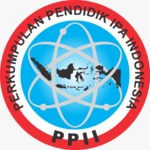Efektivitas Pengembangan Modul Fisika Berbasis Problem Based Learning untuk Meningkatkan Penguasaan Konsep Pada Materi Getaran Harmonis
DOI:
https://doi.org/10.29408/kpj.v6i2.6814Keywords:
Effectiveness, Physics module, Problem-based learning, Mastery of concepts, Harmonic vibrationAbstract
The research has been carried out on the effectiveness of the development of physics modules based on problem-based learning to improve mastery of concepts in the material of harmonic vibrations. This study aims to produce a product in the form of an effective problem-based learning physics module to improve students' mastery of concepts in harmonic vibration material. This research is a type of research development or Research and Development (R&D) using the ADDIE model which consists of the Analysis, Design, Development, Implementation, and Evaluation stages. This article only discussed the implementation stage. The research instrument used is a concept mastery test instrument which is arranged according to the concept mastery indicators, namely C1 to C6 which consists of remembering (C1), understanding (C2), applying (C3), analyzing (C4), evaluating (C5) and creating (C4). C6). Data collection techniques used a pretest at the beginning of learning and a posttest at the end of learning. The effectiveness of the module was analyzed by the N-gain test. Based on the results of the analysis of the pretest and post-test scores, an average N-gain value of 0.67 was obtained in the medium category, it can be concluded that the problem-based learning-based physics module is effective for improving students' mastery of concepts in harmonic vibration material.References
Anaperta, M. (2015). Praktikalitas Handout Fisika SMA Berbasis Pendekatan Science Environment Technology and Social pada Materi Listrik Dinamis. Jurnal Riset Fisika Edukasi Dan Sains, 1(2), 99–106. https://doi.org/10.22202/jrfes.2015.v1i2.1405
Daryanes, F., Sriyati, S., & Priyandoko, D. (2016). Implementasi Problem Based Learning untuk Meningkatkan Habits of Mind, Emotional Intelligence, dan Penguasaan Konsep Siswa. Seminar Nasional Pendidikan Dan Saintek, Universitas Pendidikan Indonesia.
Depdiknas. (2008). Panduan Pengembangan Bahan Ajar.
Hasanah, T. A. N., Huda, C., & Kurniawati, M. (2017). Pengembangan Modul Pembelajaran Fisika Berbasis Problem Based Learning (PBL) pada Materi Gelombang Bunyi untuk Siswa SMA Kelas XII. Momentum: Physics Education Journal, 1(1), 56–65. https://doi.org/10.21067/mpej.v1i1.1631
Jauhariyah, M. N. R., Sarwanto, & Suparmi. (2013). Pengembangan Modul Fisika Berbasis Problem Based Learning pada Materi Fluida untuk Siswa Cerdas Istimewa-Berbakat Istimewa. Jurnal Pendidikan IPA, 2(3).
Kokasih, E. (2021). Pengembangan Bahan Ajar. PT Bumi Aksara.
Latief, H., Rohmat, D., & Ningrum, E. (2014). Pengaruh Pembelajaran Kontekstual terhadap Hasil Belajar. Juarnal Gea, 14(1), 11–27.
Mulyani, F., & Haliza, N. (2021). Analisis Perkembangan Ilmu Pengetahuan dan Teknologi (Iptek) Dalam Pendidikan. Jurnal Pendidikan Dan Konseling, 3(1), 101–109.
Nismalasari, Santiani, & Rohmadi, H. M. (2016). Penarapan Model Pembelajaran Learning Cycle terhadap Keterampilan Proses Sains dan Hasil Belajar Siswa pada Pokok Bahasan Getaran Harmonis. 4(2), 74–94.
Nurmasinta. (2021). Analisis Kesulitan Belajar Fisika Peserta Didik pada Materi Hukum Newton. Universitas Muhammadiyah Makassar.
Pamungkas, T. (2020). Model Pembelajaran Berbasis Masalah (Problem Based Learning). Guepedia.
Resbiantoro, G., Sarwanto, & Cari. (2015). Pengebangan Modul Pedagodical Contect Knowledge (PCK) Fisika pada Materi Hukum Gravitasi Newton untuk SMA Kelas XI. Jurnal Inkuiri, 4(1), 121–130. https://doi.org/10.20961/inkuiri.v4i1.9596
Sani, R. A. (2019). Strategi Belajar Mengajar. PT Raja Grafindo Persada.
Sanjaya, W. (2012). Media Komunikasi Pembelajaran (Edisi Pertama). Kencana.
Sarmatheo, C. A., Syam, M., & Zulkarnaen. (2020). Efektivitas Model Problem Based Learning (PBL) terhadap Problem Solving Skill dan Penguasaan Konsep Kalor. Jurnal Literasi Pendidikan Fisika, 1(2), 165–17. http://jurnal.fkip.unmul.ac.id/index.php/JLPF
Simanjuntak, M. P. (2014). Efektivitas Model Problem Based Learning terhadap Penguasaan Konsep Mahasiswa pada Konsep Suhu dan Kalor. Jurnal Inpafi, 2(3), 126–133.
Sugiyono. (2013). Metode Penelitian Pendidikan Pendekatan Kuantitatif, Kualitatif, dan R&D (16 ed.). Alfabeta.
Suratsih, Budiwati, Suhanoyo, & Wibowo, Y. (2010). Pengembangan Modul Pembelajaran Biologi Berbasis Potensi Lokal dalam Kerangka Implementasi KTSP SMA di Yogyakarta.
Susilawati., Jamaluddin., & Bachtiar, I. (2017). Pengaruh Model Pembelajaran Berbasis Masalah (PMB) Berbantuan Multimedia terhadap Kemampuan Berpikir Kritis Peserta Didik Kelas VII SMP Negeri 2 Mataram Ditinjau dari Kemampuan Akademik. Jurnal Pijar Mipa, 12(2), 64–70.
Ulfa, A. (2019). Pengembangan E-Modul Berbasis Masalah untuk Meningkatkan Penguasaan Konsep Hukum Newton Tingkat SMA. Universitas Islam Negeri Syarifhidayatullah.
Widyaningrum, R., Sarwanto, & Karyanto, P. (2013). Pengembangan Modul Berorientasi POE (Predict, Observe, Explain) Berwawasan Lingkungan Pada Materi Pencemaran untuk Meningkatkan Hasil Belajar Siswa. Jurnal Bioedukasi, 6(1), 100–117.
Wisic, M. I., & Makiyah, Y. S. (2021). Efektivitas Modul Pembelajaran Berbasis Problem Based Learning terhadap Kemampuuan Pemecahan Masalah Siswa pada Materi Dinamika Rotasi. ORBITA: Jurnal Hasil Kajian, Inovasi, Dan Aplikasi Pendidikan Fisika, 7(1), 229–232.









